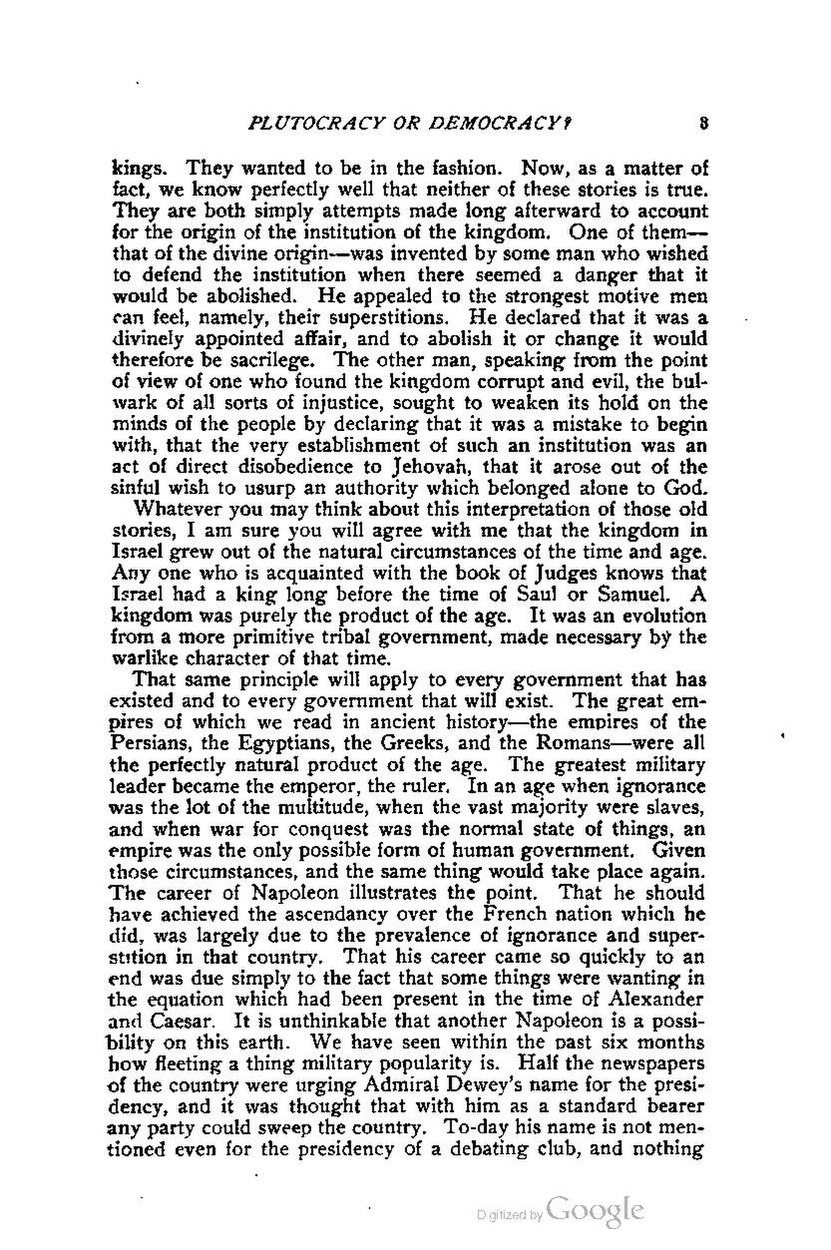kings. They wanted to be in the fashion. Now, as a matter of fact, we know perfectly well that neither of these stories is true. They are both simply attempts made long afterward to account for the origin of the institution of the kingdom. One of them—that of the divine origin—was invented by some man who wished to defend the institution when there seemed a danger that it would be abolished. He appealed to the strongest motive men can feel, namely, their superstitions. He declared that it was a divinely appointed affair, and to abolish it or change it would therefore be sacrilege. The other man, speaking from the point of view of one who found the kingdom corrupt and evil, the bulwark of all sorts of injustice, sought to weaken its hold on the minds of the people by declaring that it was a mistake to begin with, that the very establishment of such an institution was an act of direct disobedience to Jehovah, that it arose out of the sinful wish to usurp an authority which belonged alone to God.
Whatever you may think about this interpretation of those old stories, I am sure you will agree with me that the kingdom in Israel grew out of the natural circumstances of the time and age. Any one who is acquainted with the book of Judges knows that Israel had a king long before the time of Saul or Samuel. A kingdom was purely the product of the age. It was an evolution from a more primitive tribal government, made necessary by the warlike character of that time.
That same principle will apply to every government that has existed and to every government that will exist. The great empires of which we read in ancient history—the empires of the Persians, the Egyptians, the Greeks, and the Romans—were all the perfectly natural product of the age. The greatest military leader became the emperor, the ruler. In an age when ignorance was the lot of the multitude, when the vast majority were slaves, and when war for conquest was the normal state of things, an empire was the only possible form of human government. Given those circumstances, and the same thing would take place again. The career of Napoleon illustrates the point. That he should have achieved the ascendancy over the French nation which he did, was largely due to the prevalence of ignorance and superstition in that country. That his career came so quickly to an end was due simply to the fact that some things were wanting in the equation which had been present in the time of Alexander and Caesar. It is unthinkable that another Napoleon is a possibility on this earth. We have seen within the past six months how fleeting a thing military popularity is. Half the newspapers of the country were urging Admiral Dewey's name for the presidency, and it was thought that with him as a standard bearer any party could sweep the country. To-day his name is not mentioned even for the presidency of a debating club, and nothing
